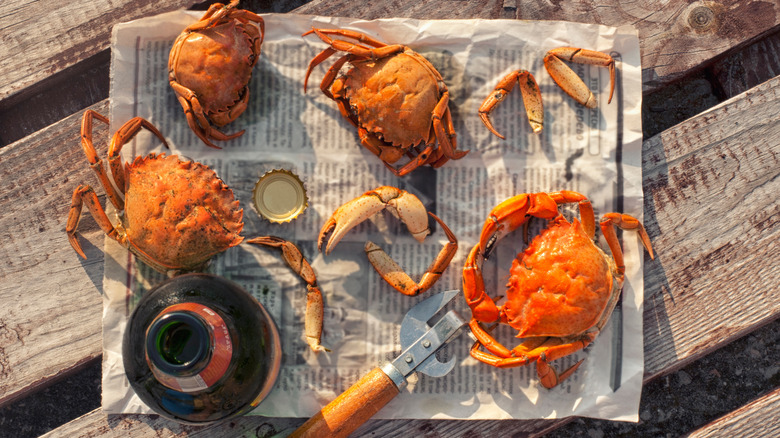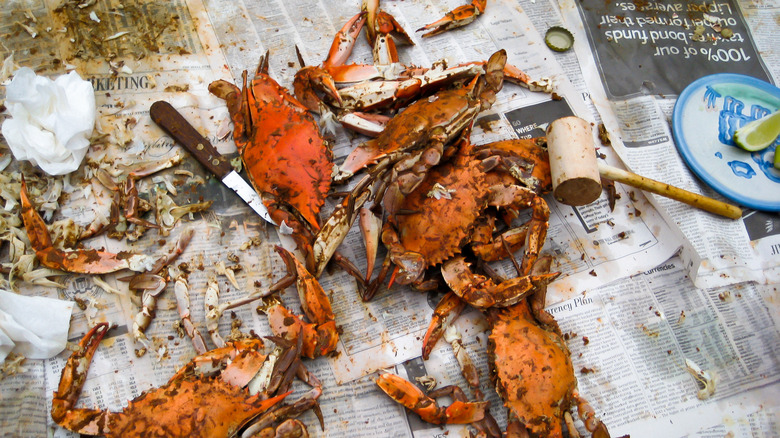The Clever Reason A Lowcountry Boil Is Served On Newspapers
Lowcountry boils are a Southern tradition steeped in the turbulent history of the slave trade; enslaved Africans utilized long-standing communal cooking methods while they worked the cotton and rice fields by boiling all available ingredients in a giant pot for all to eat. Lowcountry boils retain the resourcefulness and collectivity of these historical one-pot meals but have thankfully transformed into an all-inclusive gathering of family and friends.
While "lowcountry boil" is common in the Carolinas, seafood boils are ubiquitous across all coastal Southern states, from the Gulf of Mexico to the Atlantic. They offer the same sense of community as a backyard barbecue and are just as messy. In the spirit of resourcefulness, a key feature of lowcountry, crawfish, or seafood boils is using newspapers instead of plates.
Long picnic tables covered in newspapers are topped with freshly boiled shellfish, potatoes, corn, and sausage, beckoning all to dig in! Newspapers act as plates, napkins, and trash collectors all in one. They absorb all the residual brine and cooking juices from the seafood as you eat and eventually streamline the cleanup process. Once the giant mound of seafood, sausage, and starches has been reduced to shells and stripped corn cobs, you can simply roll them all up in the underlying newspapers and throw everything in the trash.
When the tradition started, most households already paid for a subscription, making them ubiquitous. Newspapers can still be more cost-effective than paying for disposable plates and napkins. Plus, newspapers are biodegradable and thus eco-friendly.
Lowcountry boil tips
Newspapers are the standard vessel for serving and cleanup, but there are a few tips to ensure they do the job. Newspaper is, well, paper, so you'll need at least two to three layers of paper for proper absorption. A good rule of thumb is to lay out more than you might need, so any untainted newspaper at the bottom can be used to sop up rogue brine or pick up seafood shells off the floor.
Smartphones and tablets have replaced hard copy with digital publications, making newspapers increasingly scarce. So, if you don't have a subscription to a hard-copy newspaper, you'll need to look for a replacement. Butcher paper, parchment paper, or even plain old craft paper are all worthy alternatives to newspapers. Butcher and parchment paper are even more ideal because they're super absorbent or waterproof and made with food-safe material.
Another important tip is to thoroughly drain the boiling liquid through a colander instead of fishing out the contents of the boil from the undrained pot. This will ensure that your food doesn't continue to cook and will also rid it of excess brine that'll soak the newspaper and impart an unpleasantly fishy flavor to the corn and potato.

